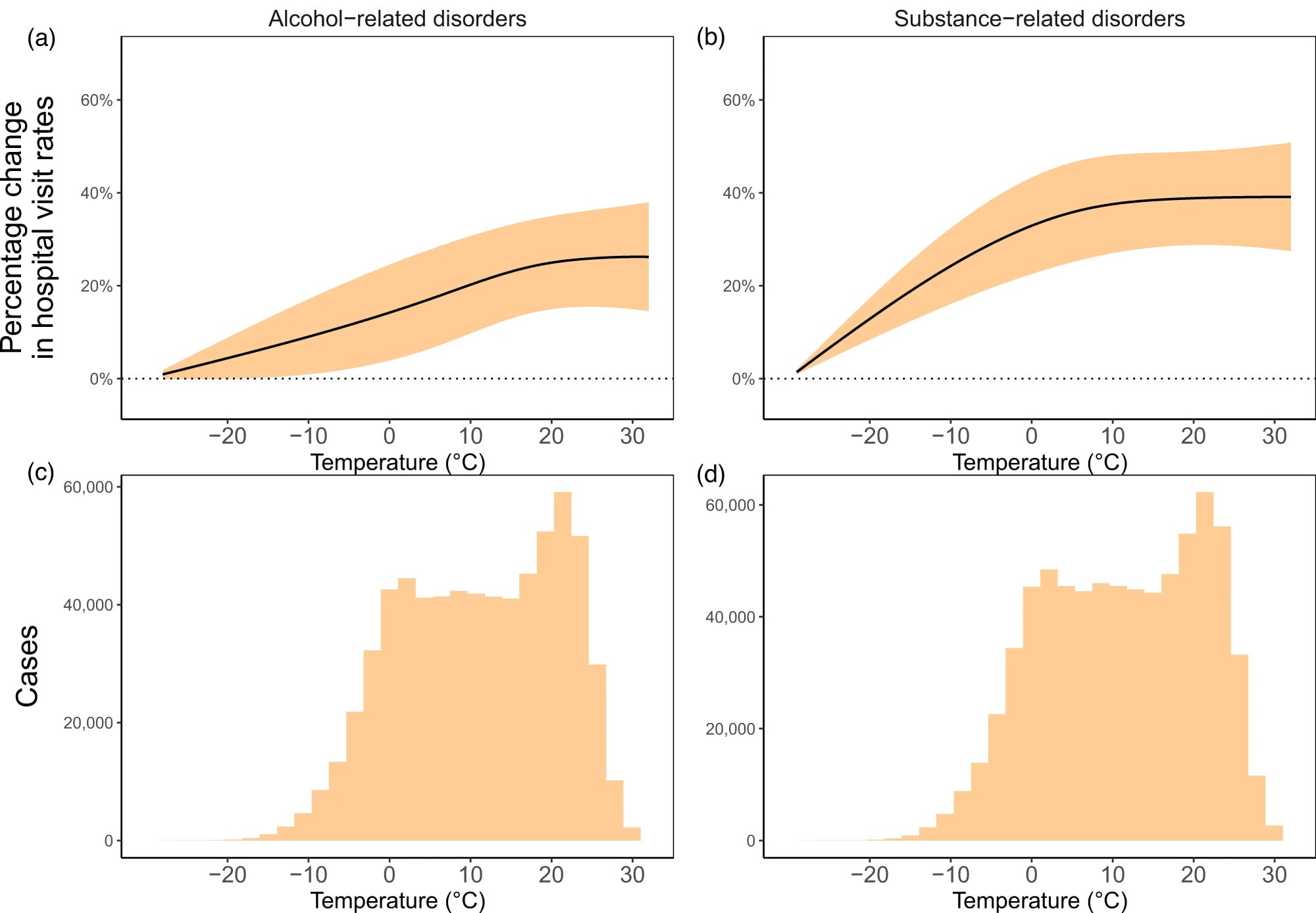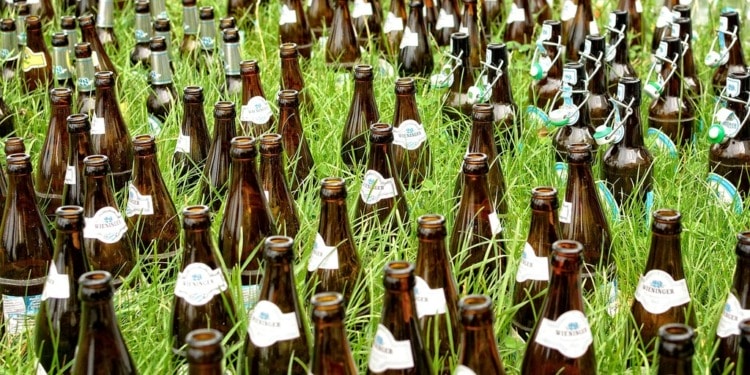For many Europeans, a drink with friends in the late afternoon sunshine is the ideal way to start a summer weekend. But as new research now suggests, climate change is even affecting our alcohol consumption habits.
The study, published in Nature’s Communications Medicine journal, has found that rising temperatures as a result of climate change are leading to a rise in alcohol and drug abuse.
The researchers obtained hospital records detailing admissions from 1995 to 2014 from hospitals in New York State. Daily average temperatures, specific humidity and pressure were collected from the North American Land Data Assimilation System.
By analysing the data, the report found that over the course of the study period (1995-2014), the number of alcohol and substance-related hospital admissions grew for both men and women. There were also more drug-related hospitalisations than alcohol ones.
“[O]verall, there was a near-linear positive association between temperature and alcohol-related disorders hospital visits across most of the temperature distribution,” the report concludes.
Specifically, the researchers observed a 24.6% increase in hospital visit rates for alcohol-related disorders associated with “a daily increase in temperature from the daily minimum to the 75th percentile across 0–6 lag days […] largely driven by increases on the day of and day before hospital visit.”
The same is also true for drug hospitalisations — the warmer the temperature, the more drugs people took but only to a certain point.
“For substance-related disorders, we find evidence of a positive association at temperatures from the daily minimum to the 50th percentile, but not at higher temperatures,” the authors write.
What’s causing this pattern?
There are “many behavioural or psychological reasons,” the researchers say, for this correlation.
Firstly, they speculate that there may be fewer hospitalizations for alcohol and drug abuse in colder weather because people are less motivated to go to hospital. The trip there might seem hazardous in cold or otherwise inclement weather, the report explains.
Other reasons stated by the scientists include people spending more time drinking outside when the weather is warm and sunny, people consuming alcohol and participating in riskier outdoor activities, dehydration from warm weather and alcohol combined, or even people driving under the influence.

There is a threshold, the report found, for the correlation “because once outdoor temperatures are sufficiently comfortable, further temperature increases may not increase outdoor activity.”
Of all drug abuse, cocaine-related hospital admissions showed the strongest correlation with temperature. This could be because coupling cocaine with alcohol makes the users sweat more and increases the risk for the development of cardiovascular and respiratory issues.
Opioid users, the report also explains, have even reported lower drug efficacy in warm weather, meaning they may take a higher dose on hot days.
Related article: France Wine Crisis: Changing Habits and Climates Are Curbing Viticulture | Health Must Be Fast-Tracked for 2030 | How Climate Change Affects Health and How Countries Can Respond | Climate changes health, how can we adapt to protect it?
Visits to hospitals for drug and alcohol abuse are normally emergency visits, showing that the relationships between temperature and alcohol and drug admissions are created by those making non-routine trips, the study states.
America’s opioid epidemic and climate change
The report goes on to explain how America’s opioid epidemic has resulted in a rise in usage and dependency of prescription and illegally-bought drugs.
“Drug overdose deaths in the United States have increased more than five times since the end of the 20th century,” the researchers assert, adding that drug abuse is responsible for 1 in 8 deaths among adults aged 20 to 64 years.
People living with drug and alcohol abuse disorders are particularly vulnerable as levels of extreme heat continue to rise.
The report suggests that public health interventions warning people about the risks of consumption in warm weather should be “a public health priority,” and calls for social and healthcare reform.
Whilst we regularly hear about the effects of global warming on our planet and ecosystems, it is also important to understand the ways in which climate change is affecting social behaviour and causing real harm even in the most developed and wealthy societies.
Editor’s Note: The opinions expressed here by the authors are their own, not those of Impakter.com — In the Featured Photo: Beer bottles in a grass field. Featured Photo Credit: Picryl.














